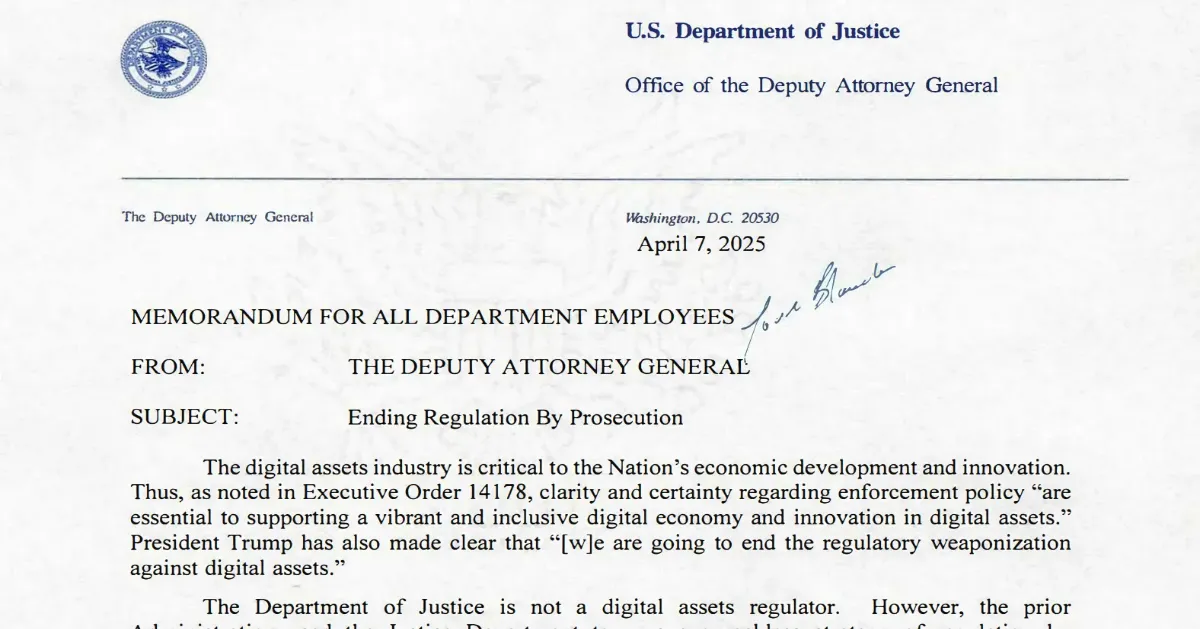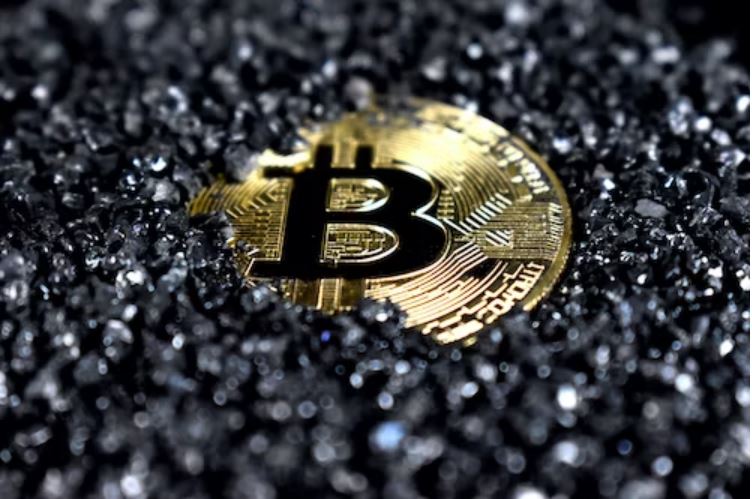Final week, Deputy Legal professional Normal (DAG) Todd Blanche despatched a memo to staff of the Division of Justice, directing the company to cease prosecuting mixers, exchanges, and “offline wallets” for the legal conduct of their customers.
Understandably, the neighborhood broke out in celebration. Privateness is now authorized once more! Some proclaimed. #FreeSamourai! Others demanded. DOJ ends “regulation by prosecution”, media retailers headlined, referring to the memo’s title, as firms who had beforehand left the US because of regulatory uncertainty introduced plans to return. This may change every little thing, seemed to be the overall tenor.
However does the DAG’s memo really change something? Students usually are not so positive.
“Did DOJ Bless A Crypto Free-For-All? Think Again,” writes the trade publication Law360, learn by over 2 million authorized professionals world wide. “The platforms could still face enforcement actions if investigators uncover evidence that they knew customers were using digital assets to further transnational crime.”
Particularly, the memo instructs the DOJ to focus much less on regulatory violations, and extra on “those who use digital assets in furtherance of criminal offenses”, resembling terrorism, organized crime, and hacking, in addition to narcotics- and human trafficking.
Whereas the memo reads that “the Department will no longer target virtual currency exchanges, mixing and tumbling services, and offline wallets for the acts of their end users or unwitting violations of regulations,” there seems to be little or no readability as to whom the DOJ considers to “use digital assets in furtherance of criminal offenses” – people thereby excluded by the DAG’s statements.
“A handful of pending, high-profile prosecutions could soon offer clues on the DOJ’s approach. They include a money laundering case against Roman Storm,” Law360 writes.
Each within the prosecution of Storm, in addition to within the prosecution of Samourai Pockets builders Keonne Rodriguez and William Hill, the company is at the moment claiming that the complete level of creating their revered privateness companies was to complement themselves on legal exercise, putting them effectively inside body of the memo’s exceptions.
Notably, the DAG’s memo particularly excludes a subsection of USC 18 §1960, which is “at the heart of the Storm and Samourai Wallet cases,” posted CEO of the DeFi Schooling Fund Amanda Tuminelli on X.
As a consequence of this exclusion, the prosecution of each Twister Money and Samourai Pockets builders will proceed to set precedent over whether or not builders of non-custodial companies will be held accountable for the actions of their customers, and should additional deploy complete anti-money laundering frameworks as required of any cash service enterprise, together with know-your buyer checks.
“We will wait to see what happens with the Tornado Cash and Samourai Wallet prosecutions,” writes CoinCenter’s Peter van Valkenburgh on X. The memo is “great news, but important not to over read this,” writes Bitcoin Coverage Institute fellow Zack Shapiro equally.
Each prosecutions successfully concentrate on the obligations software program builders face when having no management over the funds their software program transmits, into which the DAG’s memo seems to offer no perception. The truth is, the DAG seems to have deliberately prevented the phrases “non-custodial” or “unhosted,” as non-custodial wallets are generally referred to in Authorities circles, as a substitute referring to “offline wallets” in its statements.
Many in return at the moment are questioning how software program builders could implement KYC checks when coping with non-custodial wallets if the prosecution of both builders is profitable, and non-custodial companies like Samourai and Twister Money are deemed to fall underneath cash service enterprise licensing necessities.
Former CFTC chair Timothy Massad gave some perception into how the KYC of the longer term could look when utilized to Bitcoin in an interview with Bitcoin Journal final week, stating that he believes guaranteeing that Bitcoin isn’t used for illicit functions will most likely concerned some type of “digital identity,” in addition to “smart contracts” which “wouldn’t process a transaction unless you could provide that [digital identity].”
What could sound like a distant dystopian future is at the moment being mandated within the US, which would require US Individuals to current a Actual ID suitable drivers license for home air journey beginning Could seventh, which is meant to be expanded into a completely fledged digital identification as soon as the doc is broadly sufficient adopted.
It is a visitor put up by L0la L33tz. Opinions expressed are fully their very own and don’t essentially replicate these of BTC Inc or Bitcoin Journal.







